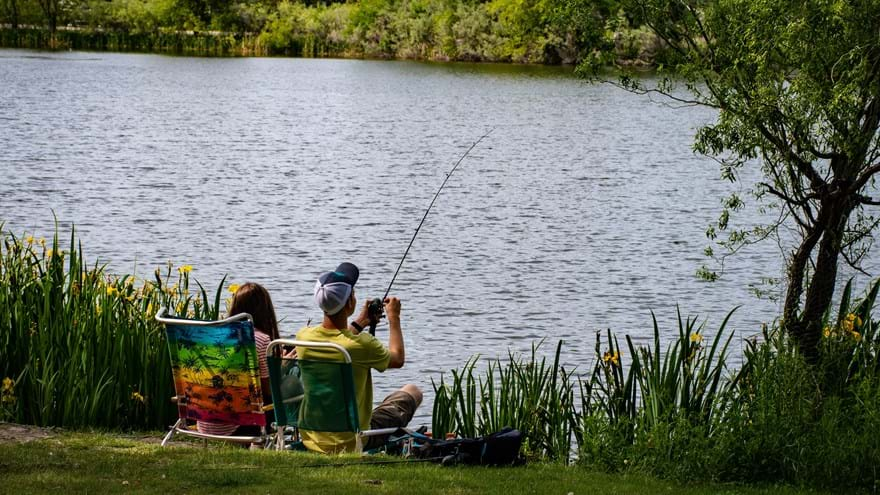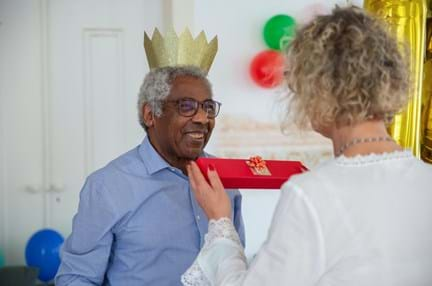Hobbies with low vision: fishing
Fishing is the most popular participation sport in the country - and there’s no need to give it up when you lose your sight.
One of biggest myths about losing your sight is that you need to give up all the things you love. That certainly isn’t true with fishing.
Sure, your days of staring at a float may be over, but by changing your approach you can make the whole experience more tactile and accessible – and just as enjoyable.
These are common techniques used by our veterans:

Get your licence
Every angler should have a rod fishing license and you’ll be happy to hear that a disabled persons license will save you a few pounds.
Most fishing clubs and venues offer a disabled rate, so it’s always worth asking.
Prepare before you go
Setting up some of your equipment before you set off could save you a lot of time and frustration. For example, you could set up your rod with a swivel clip tied to the end with the help of good lighting at home.
Some of our veterans even find it easier to keep their rods set up with a running swivel clip and a second on the end. The rod is then simply folded and held together with elastic bands.
When they arrive at their bank they can quickly put the rod together, then clip a weight on to the sliding swivel and a rig on the end. The rig can be baited beforehand too.
Keep it simple
The simplest option for ledgering the line is to do it over your finger. With the help of ready-tied hooks and simple clip connectors, fishing can become a lot less fiddley.
Ideally, for larger fish, you’ll need an audible alarm for bite indication and ready-tied hooks or rigs. Fishing like this on a running ledger allows effective bite indication and is still nice and simple.
Choose colourful equipment
These days most fishing equipment comes in green and camouflage which doesn’t lend itself to good contrast, so you might want to think about adding brightly coloured paint or tape so you can find your rod or net easily.
Camping gear often has more options for colourful chairs, bags and containers.
Stay safe
In terms of safety - for both you and the fish – you may want to consider the following:
Avoid barbed hooks and keep you tools and tackle well organised.
Have someone with you, or use walkie talkies to stay in touch with others around the lake.
Use an unhooking mat with edges so the fish doesn’t slide around and have a plan in place for how you are going to return the fish to the water.
Talk to your local blind club as there maybe others who’d like to go fishing and if you get enough people interested, group trips can be arranged.
Often staff at fishing venues are only too happy to help, so it’s always worth giving them a call before you go and seeing what assistance they can offer.
Read more
Watching TV with a vision impairment
5 Jan 2024
Many of us rely on our televisions for entertainment – and having sight loss doesn’t need to mean missing out.

Gift ideas for people with sight loss
17 Dec 2023
Need inspiration for what to buy someone who's blind or partially sighted? Try our sight loss inclusive gift ideas.

Hobbies with low vision: gardening
30 Jan 2024
Gardening is one of the best hobbies for someone with sight loss as it can be as simple or as complex as you like.

Sign up for email updates
We would love to send you updates about our work and how you can support us.
You can change your contact preferences at any time by calling us on 0300 111 2233 or emailing us. See our privacy policy for more details.